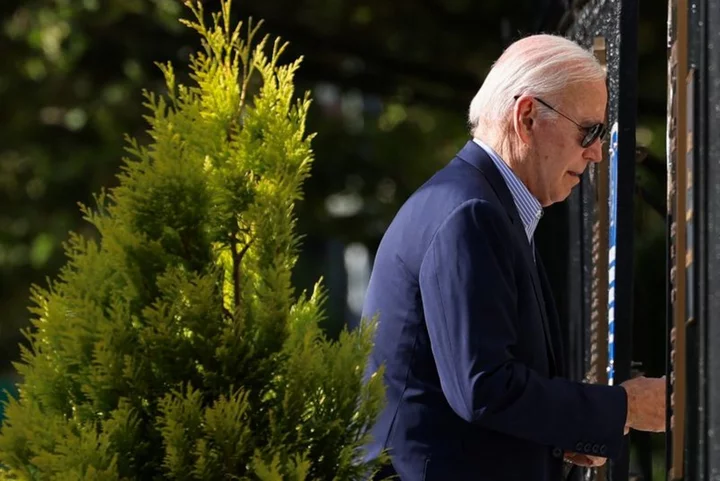It’s no secret that weddings tend to boast a hefty price tag. And if the past few years have taught us anything, it’s that even if you meticulously plan every detail of your wedding, there are circumstances outside your control. Take for example the case of inclement weather, when you have to abort mission and rent a last-minute tent instead of dancing under the stars like you initially planned. Which begs the question: With weddings being so expensive, is it worth it to get wedding insurance?
According to The Knot’s 2022 Real Weddings Study, couples in the U.S. spent an average of $30,000 on their ceremony and reception last year — with the venue alone costing an average of $11,200, on top of other expenses (the cake, the flowers, a DJ, a caterer, the dress, and so on). With prices that steep, insuring your big day might give you some peace of mind knowing that in the event of the unexpected, you’ve backed up all of your hard work and planning.
So how does wedding insurance work exactly, what does it cover, and do you really need it? Ahead, we break down everything there is to know.
What is wedding insurance?
Wedding insurance can be used to cover postponement or cancellation of the event due to illness or weather, as well as lost deposits, unplanned venue closings, medical emergencies, no-show photographers, lost or stolen wedding gifts, lost or damaged dresses or attire, and coverage for other unexpected expenses. Most plans don’t include coverage for when someone has a change of heart — though Wedsure is an exception to this. Even still, Wedsure only covers a change of heart if the wedding was paid for by a party other than the bride or groom.
There is also liability insurance, which covers you for any damage to the venue for which you are responsible during the event, or if a guest gets sick or injured at the wedding.
Do you need wedding insurance?
According to Travelers Insurance data from 2021, the most common wedding insurance claims result from vendor or venue issues, illness or injury, and severe weather, so if you are particularly concerned about any of these factors, you might want to consider your insurance policy options. Plus, many venues these days actually require couples to buy insurance in order to book a spot. And before you buy anything, know that some venues and vendors might also have insurance policies of their own, so you’ll want to investigate everything before taking out a policy yourself.
“If you are worried about something going wrong like a venue cancellation and being out the money that you’ve already spent, then you might want to consider wedding insurance,” says Kimberly Palmer, a personal finance expert at NerdWallet. “It typically covers events such as weather or an illness that are beyond your control and helps cover the cost of moving the wedding date.”
How much does wedding insurance actually cost?
Your first order of business should be adding up all of your wedding expenses, which will help you determine how much to put down to cover everything. “In general, [plans] cost around $100 to $200 and can go up to $1,000 to cover the priciest ceremonies,” Palmer says. “A typical policy in the $100 to $200 range will cover host liquor liability, gifts, attire, and any deposits.” Travelers Wedding Protector Plan, for example, provides tiers of coverage ranging from $160 to $1,475.
“Consider the cost of all purchases and deposits you have made for your venue, gown, wedding rings, caterers, entertainment, flowers, cake, invitations, postage, etc., to make sure you have financial protection in place to recoup any losses,” says Todd Shasha, senior managing director of Personal Insurance Product Management at Travelers. “Another good rule of thumb is to choose a coverage level at least equal to the amount you would stand to lose if you were forced to reschedule your wedding at the last minute.”
Palmer adds that before taking out a wedding insurance policy, you should check to see what coverage you may already have under existing homeowner or rental insurance policies. It can be less expensive to add a rider or an additional section to the already-existing policy for the wedding, instead of paying for a whole separate wedding policy.
Plus, make sure to do your due diligence in researching the insurance provider and plan before you commit to anything. “Before you choose a policy, make sure you know exactly what it covers,” says Palmer. “As with all types of insurance, you want to make sure you are working with a legitimate insurance provider. If you are going with a company you haven’t heard of, search for it online to see if there are many consumer complaints: Type in the name of the company and ‘complaints’ and you will be able to see if people are talking about it negatively online.” Another pro-tip is to check in with your venue, as venues also typically have a list of recommended insurers.
All in all, wedding insurance might not be the sexiest consideration on a wedding planning agenda, but it can certainly provide some much needed stress relief and assurance that if things go haywire, your big day (and big budget) is protected. That being said, though, as with most items on a wedding to-do list, there is no right way to go about things. In the end, every case is different, whether your venue requires wedding insurance or it’s a personal choice for you and your partner.









